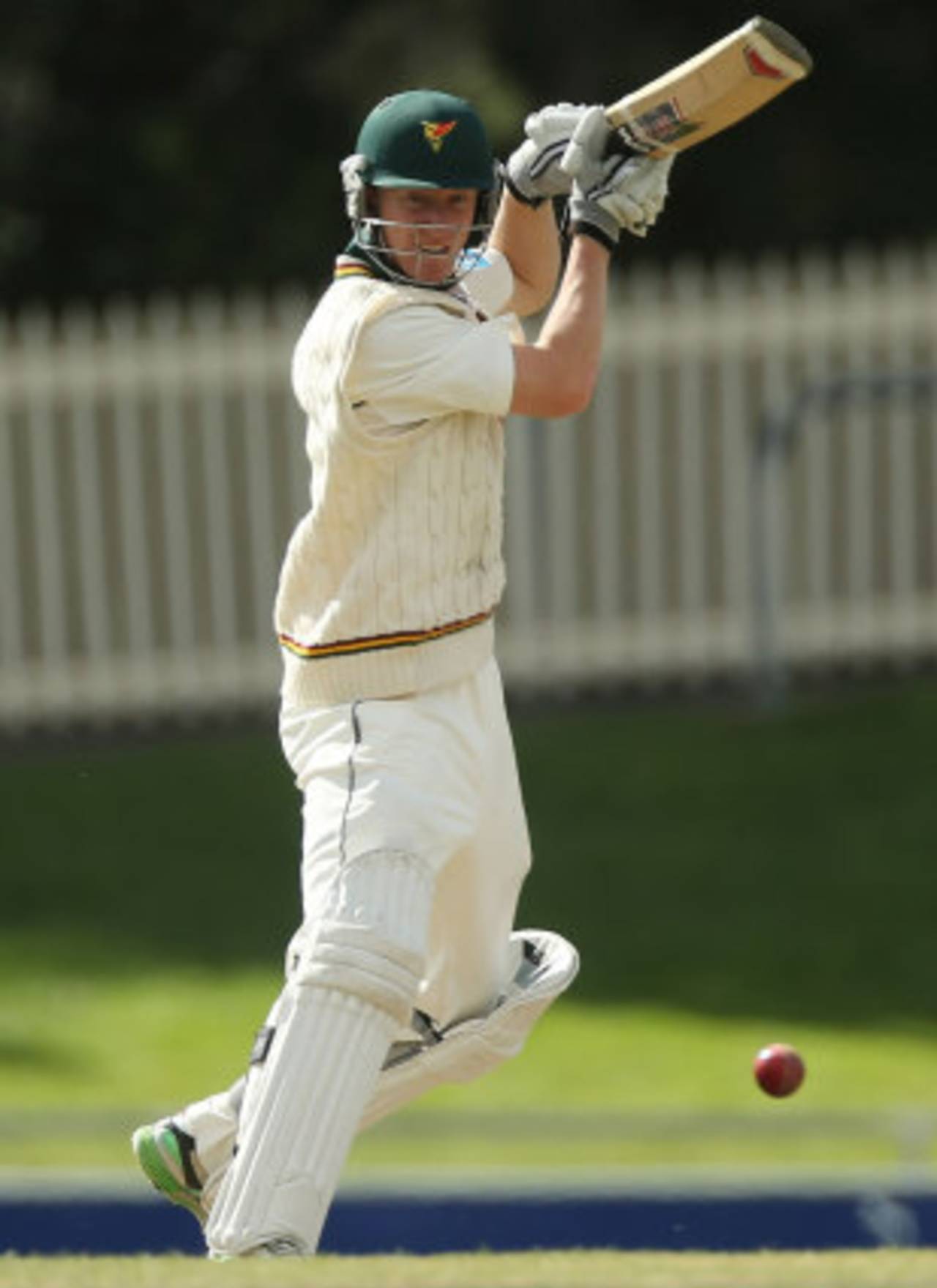There isn't an element of Australian cricket that hasn't escaped the spotlight in the wake of the submission in the subcontinent. The early finish in Delhi diverted eyes to the Sheffield Shield final in Hobart.
Unfortunately for those hopeful souls at Cricket Australia, this final was not the spectacular showpiece of domestic cricket that it is often hyped as.
The first 92 overs of this final yielded just 176 runs and two wickets. The Bellerive surface, a seamer's delight for many seasons, was a fast bowler's graveyard over these five days.
The ball stayed low, slips were made redundant, scoring was difficult throughout the match, and save for a chaotic half hour on the fourth morning, the game crawled along to an uneventful draw.
Again mutterings of 'why are we here?' drifted from the broadcasters' commentary box. Should the trophy just go to the team at the top of the table at the end of the season, they asked? Do we need a neutral curator? Should it be a timeless game to avoid the home side playing for a draw?
Each argument lacks as much thought as the next.
If you think the trophy should go to the team that tops the table, then how can you complain about the significant advantages they gain in the final? Although only five teams have won away from home in Shield finals, it's five more than would have won if no final were played at all. Test cricket doesn't feature neutral curators, or timeless matches, so why should the competition that prepares players for test cricket do so? Teams play for draws in Test cricket when they fall behind early, as Australia's next opponents England did in Auckland. They also do it to protect as series lead, as England did to India before Christmas.
The reality is the Shield final is the most important match of the summer not featuring the national team. When the players were asked what they should give up for an extended Big Bash they did not hesitate in dropping two regular season one-day matches in order to preserve the finals of both competitions.
Shield finals come in all shapes and sizes. There are the low scoring arm-wrestles in seam friendly conditions, like last year's
decider. There are the monstrous bat-a-thons, like when Queensland
posted 900 against Victoria. And then there are the matches of attrition, slow scoring draws like this decider. Test matches come in all shapes and sizes too, on wickets and in conditions that vary widely.
But whatever the style of cricket that is played, it is a final, and it tests the character and temperament of every cricketer involved. The fact that it is televised adds extra pressure as all National selectors can view the match, as well as the cricketing public.
Stories were written about the fact that no selector was sent to this year's final. Yet the two panellists who weren't in India could watch every ball, which is more than the usual one that is posted to the ground during the season.
But most importantly it is a chance for players to shine when everything is on the line. It is easy to get soft Shield runs on flat wickets in January, or cheap wickets on green seamers in October, correction, September. But doing it March, when your state is playing for the title, should do more to prove your Test match credentials than any other performance during the season.
Justin Langer made 149 in the 1992 Shield final. He played the first of 105 Tests less than 12 months later. The Waugh brothers shared a 204-run partnership in the same WACA decider. Each made hundreds, before combining for 48 Test centuries thereafter. Adam Gilchrist made 189 in the 1996 Shield decider. He debuted in international cricket in the same year and went on to become arguably the greatest wicket-keeper batsman of all time.
It is easy to get soft Shield runs on flat wickets in January, or cheap wickets on green seamers in October, correction, September. But doing it March, when your state is playing for the title, should do more to prove your Test match credentials than any other performance during the season.
Shane Watson made 201 in the 2006 decider and Mitchell Johnson bagged 10 wickets in the same game. Phillip Hughes made hundreds in two separate Shield finals before the age of 23; one on an abrasive, slow, surface in Sydney, the other on a greener strip in Hobart. Peter Siddle took nine wickets on that grass-less surface at the SCG and debuted for Australia months later. Ed Cowan ground out a century on the same seamer at Bellerive, facing brilliant spells from Pat Cummins throughout. Cummins' next first-class fixture was a test match against South Africa in Johannesburg and he was named man-of-the-match. Cowan has subsequently made a Test century against the world number one South Africans.
In this final, a 20-year-old,
Jordan Silk, announced himself by batting for more than seven hours for 108. At a time when Australian batsmen are struggling to reach three-figures, Silk joined the names of Hughes, Ricky Ponting, Chris Rogers, Brad Haddin, and Queensland's Joe Burns as the only players with multiple centuries in this Sheffield Shield season.
Likewise, 22-year-old James Faulkner scored 46, 89, and took four wickets as the Australian selectors pine for a quality all-rounder. Ryan Harris took 4 for 10 in a six over spell, including two Australian captains, on a wicket where his team had earlier failed to collect four wickets in a day.
If you axe the Sheffield Shield final, you lose these performances and these players don't get their chance to shine in the only domestic match that replicates test match conditions.
If you give up on that then the spotlight on Australian cricket won't intensify. It will simply extinguish.
Alex Malcolm is a freelance writer based in Perth
